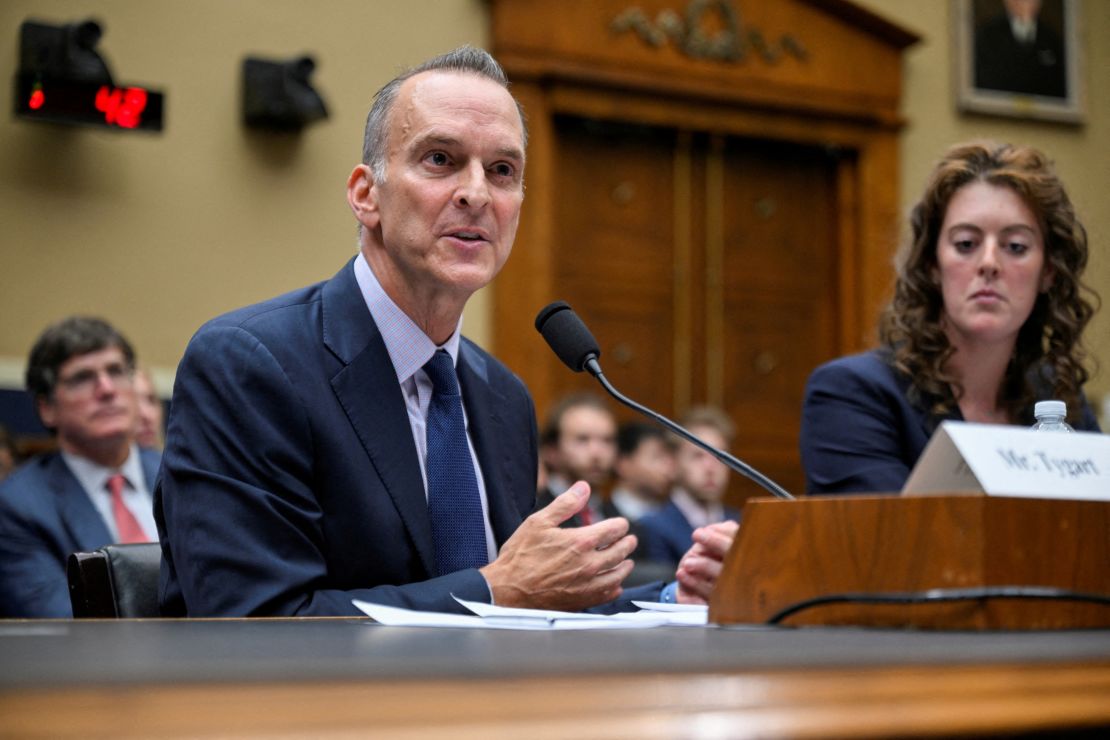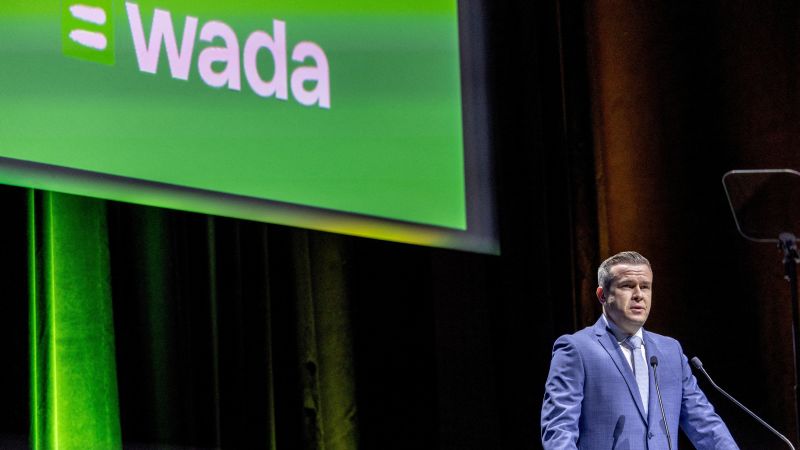CNN
—
The global and US anti-doping agencies are at odds over undercover tactics used by the American body to try to catch drug cheats, Reuters has learned.
The World Anti-Doping Agency (WADA) says US agency USADA broke the global code by letting several athletes it had caught between 2011 and 2014 violating drugs rules go undercover and keep on competing without prosecution in exchange for information on other violators.
USADA says the tactic is necessary and allowed, and wants to keep using it. WADA says it is against its code and that athletes caught breaking doping rules should not get to line up in races, potentially winning prize money and medals, without first being publicly prosecuted and sanctioned.
The two agencies are also embroiled in dispute over the global system for policing doping in sport, sparked by the case of 23 Chinese swimmers which has cast a shadow over the Paris Olympics.
“WADA is now aware of at least three cases where athletes who had committed serious anti-doping rule violations were allowed to continue to compete for years while they acted as undercover agents for USADA, without it notifying WADA and without there being any provision allowing such a practice under the (global) code or USADA’s own rules,” WADA said in a statement to Reuters.
The global agency said the three athletes have since retired but declined to name them, citing security concerns in case they faced retaliation. It issued the statement after Reuters asked if it was aware of the practice, having seen speculation about it by sports fans on social media.
The US agency has defended letting drug rule violators compete so they could act as undercover informants, saying in one case such assistance had provided intelligence to a US federal law enforcement investigation into a human and drug trafficking scheme.

“It’s an effective way to get at these bigger, systemic problems,” USADA Chief Executive Travis Tygart told Reuters. The agency declined to provide specifics about the incident in which the reliance on USADA’s informant had helped U.S. authorities.
Tygart, who is known for driving his agency’s prosecution of US cyclist Lance Armstrong, believes using violating athletes to expose more senior ones, as well as gather intelligence on organized criminals involved in sports doping and trafficking is the right thing to do.
“If you’ve got agents or others who are preying on athletes and trafficking … I think it’s totally appropriate.”
Under the World Anti-Doping Code, to which USADA is a signatory, an athlete who “substantially” assists with a doping investigation can apply to have a proportion of any ban suspended after prosecution.
There is no specific wording that says athletes who have broken anti-doping rules can continue to compete without first being prosecuted and sanctioned.
Evolving battle
The suggestion that the code “can be used to justify a failure to prosecute a case for years while doped athletes are sent back into the field as undercover informants to compete against clean athletes is obviously wrong,” WADA said.
Tygart said given WADA’s stance, they will refrain from using the tactic again unless the global agency gives it clearance but said WADA had adopted an “anti-clean sport position,” and that USADA believed it was allowed under the code.
The fight against drug cheats in sport is a constantly shifting battle with anti-doping agencies trying to keep pace when the substances and technology used to gain unfair advantages keep changing.
Agencies now store samples taken from athletes for 10 years that can be retested later for currently unknown performance-enhancing substances. Retests of samples from the 2008 Beijing and 2012 London Olympics resulted in dozens of disqualifications and medals being reallocated as recently as this year.
WADA told Reuters that in 2021 USADA had informed it that from as early as 2011 it had allowed rule-breaking athletes to act as informants, and the global agency told it to stop the practice immediately.
WADA said that two of the athletes were low-ranking on the running circuit but one was higher profile.
The global agency said that by the time USADA informed it of the practice, the athletes involved had retired and that their safety would be a risk were WADA to pursue an appeal to have their racing results wiped out or prize money returned, given the informant work they had been doing.
The higher-profile athlete’s “case was never published (made public), results never disqualified, prize money never returned, and no suspension ever served,” WADA said.
WADA said its Intelligence and Investigations department assessed that the risks to the athlete were real enough that it could not refuse USADA’s request to close the case.
“Being put in this impossible position, WADA had no choice but to agree,” it said.
USADA said in a statement WADA was aware of the cases before 2021 and called the global agency’s statement “a smear” made in response to criticism of their handling of the Chinese swimming case.






